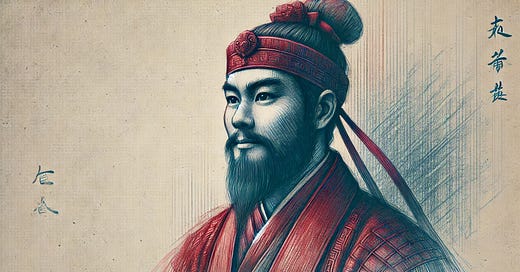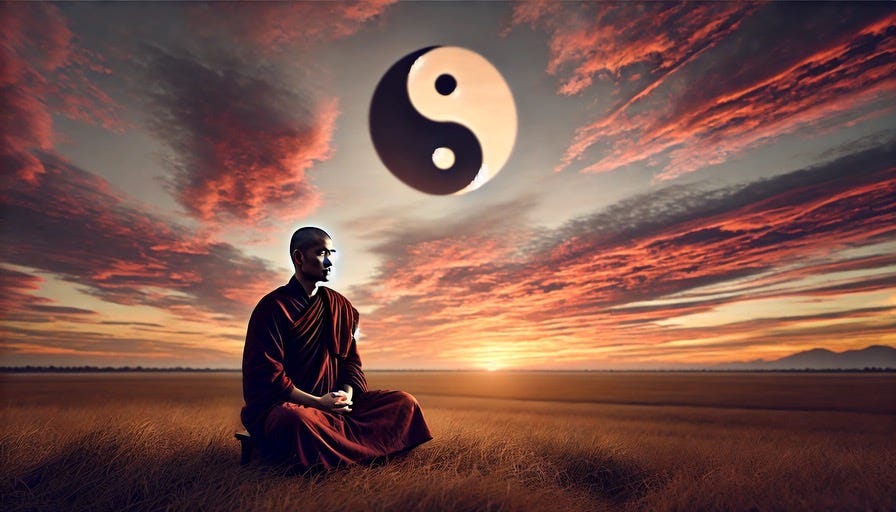As the dust settles from the latest presidential election, I find myself drawn to the wisdom of Wang Bi, the third-century Chinese philosopher who saw the world not through the lens of judgment, but as an unfolding expression of the Tao.
Having spent years immersed in Taoist philosophy, I can’t help but wonder what Wang Bi would have made of our current political theater—a stage filled with triumphs and tragedies, where every event is dissected, debated, and moralized.
Wang Bi’s approach was revolutionary for his time. He argued that events, whether we perceive them as “good” or “bad,” are merely the natural flow of the Tao. They are expressions of the universe’s inherent rhythm, beyond the grasp of human judgment.
For me, his perspectives offer a liberating lens for viewing the turbulence of elections and their aftermath—not as battles of right versus wrong, but as inevitable movements within the great unfolding of life.
Reflecting on Wang Bi’s history and evolution, I’ve come to appreciate his intellectual boldness. Born during a time of political upheaval, Wang Bi could have succumbed to the despair of his era. Instead, he turned to the Tao, interpreting Tao Te Ching with a clarity that emphasized the balance between what is and what must be.
He taught that imposing moral judgments on external events was not only futile but also a source of unnecessary suffering.
So, what would Wang Bi say about the presidential election? He might remind us that every vote, every debate, and every outcome is a thread in the web of the Tao. The perceived chaos of political cycles is not an aberration but an expression of the natural order—an order that thrives on contrast, contradiction, and change.
As someone who has witnessed countless elections, I’ve often struggled with the urge to impose my own judgments. Was this candidate’s victory a triumph of justice, or was it a failure of discernment?
Wang Bi’s teachings have encouraged me to release these questions and view the process as a mirror of human nature. Elections, after all, are not just about candidates—they’re about us, our values, and our collective state of mind.
This is not to say we should disengage or become indifferent. Wang Bi’s philosophy doesn’t absolve us of responsibility; it simply asks us to approach our actions with humility and a recognition of the larger flow.
In other words, when we stop labeling outcomes as inherently good or bad, we can act with greater clarity, free from the burdens of judgment and attachment.
As the nation digests the implications of this election, perhaps the greatest gift we can give ourselves is the freedom to observe without condemnation.
To see the unfolding of events as neither triumph nor disaster, but as the Tao expressing itself through the patterns of human life. And in that observation, we may find not only peace but also the wisdom to navigate whatever comes next.
The Tao flows, elections come and go, and the cycle continues. Wang Bi reminds us that our role is not to fight the current but to find harmony within it—no matter how turbulent the waters may seem.
I invite you to subscribe today as a member supporter. Or I’d be grateful if you’d tip me some coffeehouse love here. Your contributions are appreciated!
Every bit counts as I strive to deliver high quality feature articles into your inbox on a daily basis. Never any paywalls, just my raw thoughts which are open to everyone on what it means to be human.
Much Love,
Diamond Michael Scott — aka The Chocolate Taoist






I'm still struggling but Wang Bi's wisdom helps. I am making progress even though I fear for others who will come under possible dire affects of bad governance.